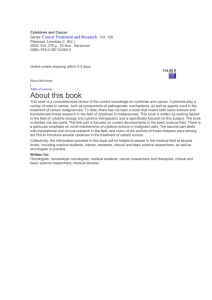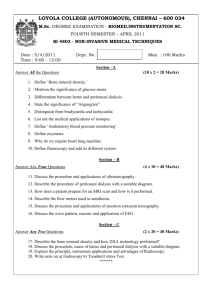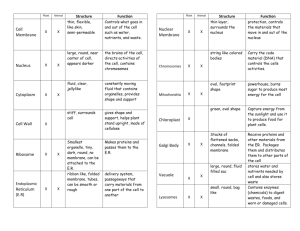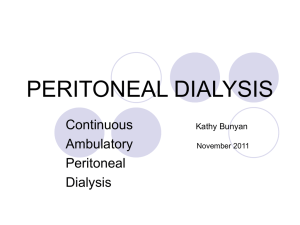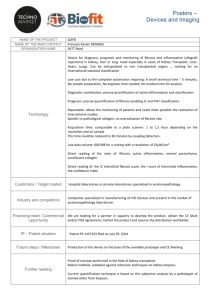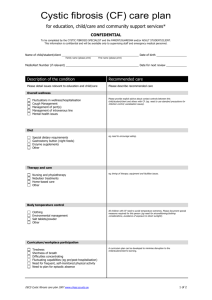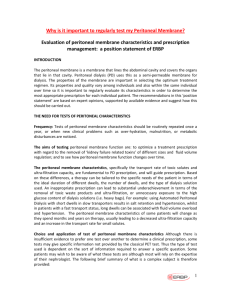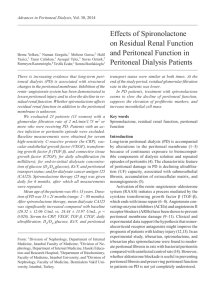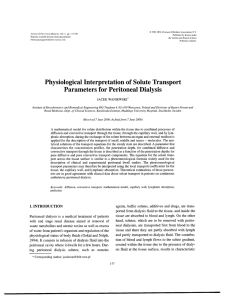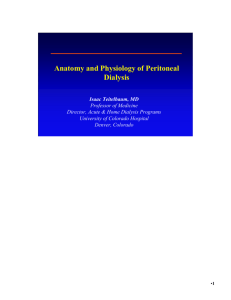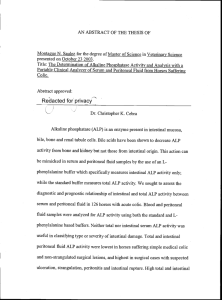O53 (RA6324) - British Renal Society
advertisement
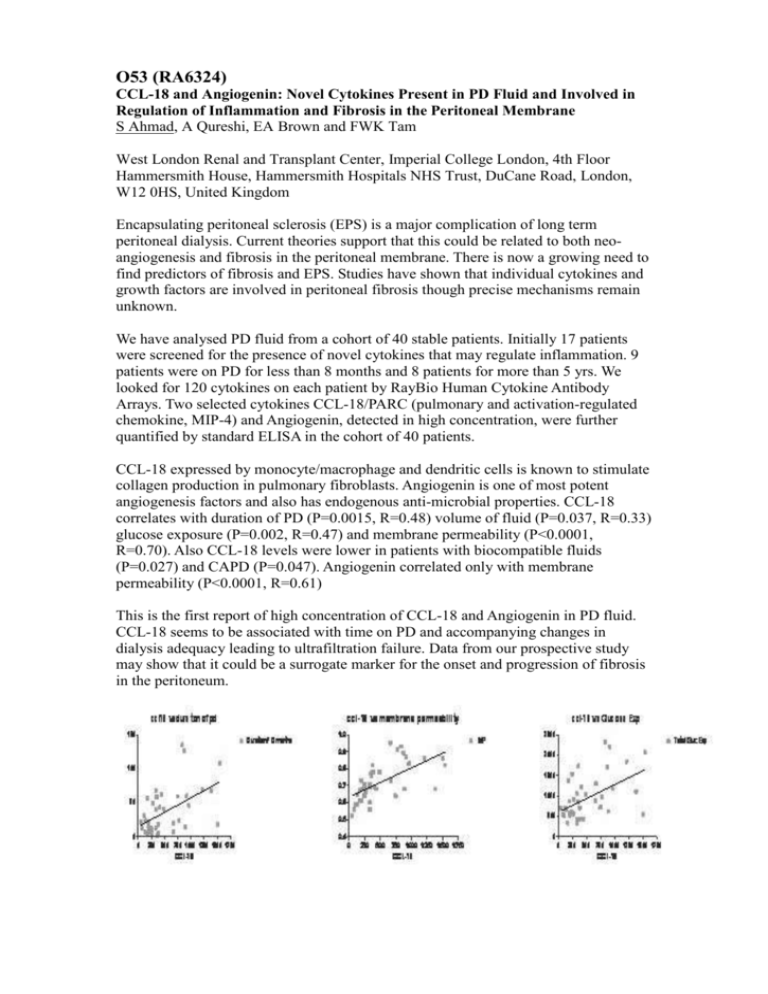
O53 (RA6324) CCL-18 and Angiogenin: Novel Cytokines Present in PD Fluid and Involved in Regulation of Inflammation and Fibrosis in the Peritoneal Membrane S Ahmad, A Qureshi, EA Brown and FWK Tam West London Renal and Transplant Center, Imperial College London, 4th Floor Hammersmith House, Hammersmith Hospitals NHS Trust, DuCane Road, London, W12 0HS, United Kingdom Encapsulating peritoneal sclerosis (EPS) is a major complication of long term peritoneal dialysis. Current theories support that this could be related to both neoangiogenesis and fibrosis in the peritoneal membrane. There is now a growing need to find predictors of fibrosis and EPS. Studies have shown that individual cytokines and growth factors are involved in peritoneal fibrosis though precise mechanisms remain unknown. We have analysed PD fluid from a cohort of 40 stable patients. Initially 17 patients were screened for the presence of novel cytokines that may regulate inflammation. 9 patients were on PD for less than 8 months and 8 patients for more than 5 yrs. We looked for 120 cytokines on each patient by RayBio Human Cytokine Antibody Arrays. Two selected cytokines CCL-18/PARC (pulmonary and activation-regulated chemokine, MIP-4) and Angiogenin, detected in high concentration, were further quantified by standard ELISA in the cohort of 40 patients. CCL-18 expressed by monocyte/macrophage and dendritic cells is known to stimulate collagen production in pulmonary fibroblasts. Angiogenin is one of most potent angiogenesis factors and also has endogenous anti-microbial properties. CCL-18 correlates with duration of PD (P=0.0015, R=0.48) volume of fluid (P=0.037, R=0.33) glucose exposure (P=0.002, R=0.47) and membrane permeability (P<0.0001, R=0.70). Also CCL-18 levels were lower in patients with biocompatible fluids (P=0.027) and CAPD (P=0.047). Angiogenin correlated only with membrane permeability (P<0.0001, R=0.61) This is the first report of high concentration of CCL-18 and Angiogenin in PD fluid. CCL-18 seems to be associated with time on PD and accompanying changes in dialysis adequacy leading to ultrafiltration failure. Data from our prospective study may show that it could be a surrogate marker for the onset and progression of fibrosis in the peritoneum.
